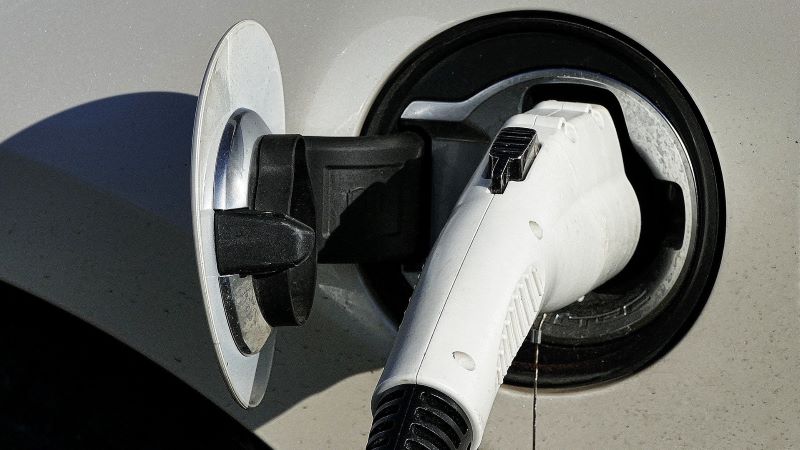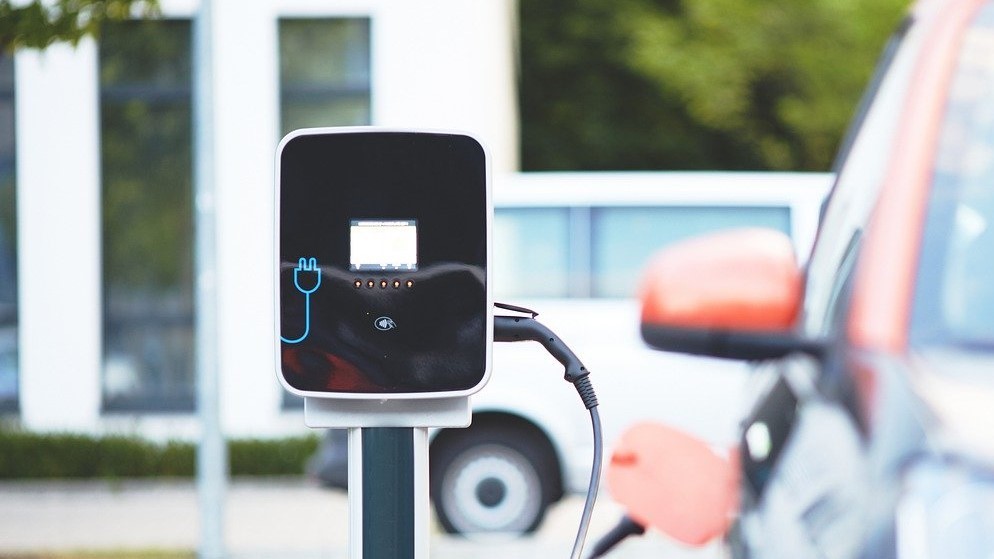Despite weak December figures, significantly more purely electric cars were sold in Germany in 2023 than in the previous year. New registrations of purely battery-electric passenger cars (BEV) rose by 11.4 percent to 524,219 units for the year as a whole. This corresponds to 18.4% of all new passenger car registrations and is the highest share of BEVs on the German market to date. In 2022, 17.7% of all new registrations were purely electric vehicles.
In December, new BEV registrations fell by 47.6% to 54,654 vehicles due to the very strong month in the previous year. The VDIK expects 2024 to be a year of uncertainty for the e-car market due to the discontinuation of the e-car subsidy.
Overall, passenger cars with alternative drive systems – i.e. purely electric, hybrids with and without plugs and gas – reached 1.38 million new registrations last year (+4.8%). The share of passenger car registrations with alternative drive systems was thus 48.5% in 2023 (2022: 49.6%). In December 2023, 129,584 newly registered vehicles (minus 40%) were equipped with alternative drive technologies.
The largest share in the group of alternative drive systems was accounted for by hybrid vehicles without plugs (23.4%). Mild hybrids in particular saw strong growth: + 45.4 percent compared to 2022. 93,562 of the 664,580 newly registered hybrid vehicles are full hybrids, a very large proportion of which come from VDIK member companies.
In contrast, plug-in hybrids (PHEVs) recorded a sharp decline of 51.5 percent in 2023, as expected. In December 2023, the decline was 74.4 percent compared to the same month of the previous year. Background: In December 2022, there was a wave of registrations of this drive type due to the abolition of the environmental bonus for PHEVs from January 2023.
In addition, 13,147 LPG passenger cars were newly registered between January and December 2023 (-12.4%). There were also 263 fuel cell cars.
The VDIK regularly updates the list of electric vehicles from international manufacturers. The VDIK electric list can be accessed here.
In addition to vehicles with alternative drive technologies, 978,660 petrol and 486,581 diesel vehicles were newly registered in 2023. The petrol share of total passenger car registrations was 34.4 percent, while diesel accounted for around 17 percent.
| December | January – December | ||||||
|---|---|---|---|---|---|---|---|
| +/- (%) | +/- (%) | Share of total car market |
Market share VDIK (%) |
||||
| BEV | 54,654 | -47,6 | 524,219 | 11,4 | 18,4 | 39 | |
| PHEV | 17,894 | -74,4 | 175,724 | -51,5 | 6,2 | 35 | |
| FCEV | 6 | -91,9 | 263 | -68,5 | 0,0 | 90 | |
| Electric Vehicles (total) | 72,554 | -58,4 | 700,206 | -16,0 | 24,6 | 38 | |
| HEV including: |
55,687 | 38,0 | 664,580 | 42,9 | 23,4 | 44 | |
| full hybrid | 7,541 | 18,8 | 93,562 | 28,9 | 3,3 | 93 | |
| mild hybrid | 48,146 | 41,6 | 571,018 | 45,4 | 20,1 | 36 | |
| CNG | 23 | -80,5 | 1,327 | -28,1 | 0,0 | 59 | |
| LPG | 1.320 | 11,4 | 13,147 | -12,4 | 0,5 | 98 | |
| Alternative Drivetrains (total) | 129,584 | -40,0 | 1,379,260 | 4,8 | 48,5 | 42 | |
| Petrol | 74,894 | 16,1 | 978,660 | 13,3 | 34,4 | 40 | |
| Diesel | 37,403 | 10,3 | 486,581 | 3,0 | 17,1 | 32 | |
| for information: | |||||||
| Passenger car (total) | 241,883 | -23,0 | 2,844,609 | 7,3 | 39 | ||
Electric vehicles: BEV, PHEV und FCEV
BEV, Batterieelektrisches Fahrzeug, engl: Battery Electric Vehicle
PHEV, Plug-In-Hybrid, engl: Plug-In Hybrid Electric Vehicle
FCEV, Brennstoffzellenfahrzeug / Wasserstofffahrzeug, engl.: Fuel Cell Electric Vehicle
Hybride, Hybrid ohne Stecker bzw. nicht aufladbar, engl.: Hybrid Electric Vehicle
CNG, Gasförmiges Erdgas, engl: Compressed Natural Gas
LPG, Flüssiggas bzw. Autogas, engl: Liquified Petroleum Gas
Models with a maximum e-motor output of 20 KW are classified as mild hybrids, while full hybrids have a maximum e-motor output of more than 20 KW.





